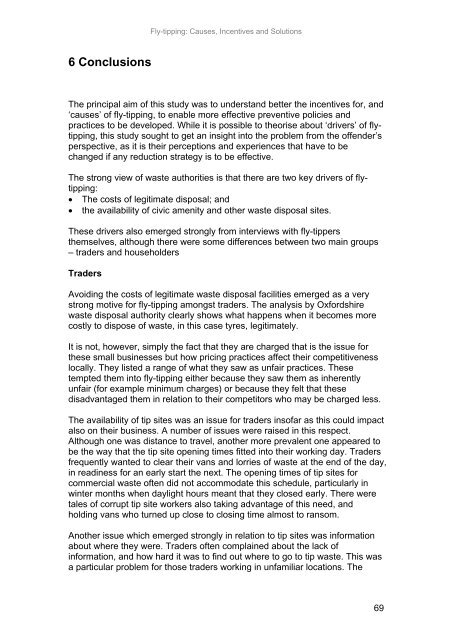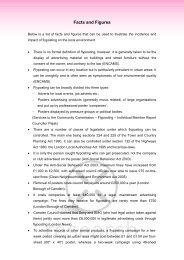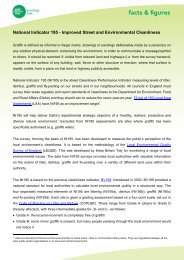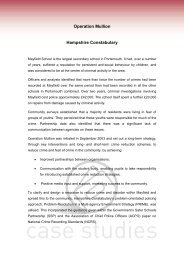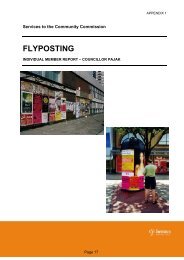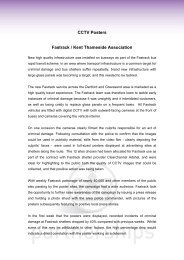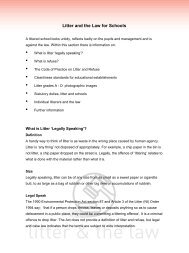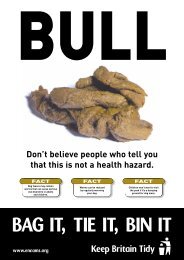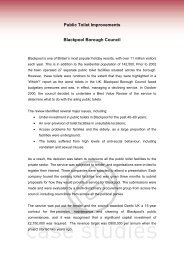Fly-tipping: Causes, Incentives and Solutions - Keep Britain Tidy
Fly-tipping: Causes, Incentives and Solutions - Keep Britain Tidy
Fly-tipping: Causes, Incentives and Solutions - Keep Britain Tidy
Create successful ePaper yourself
Turn your PDF publications into a flip-book with our unique Google optimized e-Paper software.
<strong>Fly</strong>-<strong>tipping</strong>: <strong>Causes</strong>, <strong>Incentives</strong> <strong>and</strong> <strong>Solutions</strong><br />
6 Conclusions<br />
The principal aim of this study was to underst<strong>and</strong> better the incentives for, <strong>and</strong><br />
‘causes’ of fly-<strong>tipping</strong>, to enable more effective preventive policies <strong>and</strong><br />
practices to be developed. While it is possible to theorise about ‘drivers’ of fly<strong>tipping</strong>,<br />
this study sought to get an insight into the problem from the offender’s<br />
perspective, as it is their perceptions <strong>and</strong> experiences that have to be<br />
changed if any reduction strategy is to be effective.<br />
The strong view of waste authorities is that there are two key drivers of fly<strong>tipping</strong>:<br />
• The costs of legitimate disposal; <strong>and</strong><br />
• the availability of civic amenity <strong>and</strong> other waste disposal sites.<br />
These drivers also emerged strongly from interviews with fly-tippers<br />
themselves, although there were some differences between two main groups<br />
– traders <strong>and</strong> householders<br />
Traders<br />
Avoiding the costs of legitimate waste disposal facilities emerged as a very<br />
strong motive for fly-<strong>tipping</strong> amongst traders. The analysis by Oxfordshire<br />
waste disposal authority clearly shows what happens when it becomes more<br />
costly to dispose of waste, in this case tyres, legitimately.<br />
It is not, however, simply the fact that they are charged that is the issue for<br />
these small businesses but how pricing practices affect their competitiveness<br />
locally. They listed a range of what they saw as unfair practices. These<br />
tempted them into fly-<strong>tipping</strong> either because they saw them as inherently<br />
unfair (for example minimum charges) or because they felt that these<br />
disadvantaged them in relation to their competitors who may be charged less.<br />
The availability of tip sites was an issue for traders insofar as this could impact<br />
also on their business. A number of issues were raised in this respect.<br />
Although one was distance to travel, another more prevalent one appeared to<br />
be the way that the tip site opening times fitted into their working day. Traders<br />
frequently wanted to clear their vans <strong>and</strong> lorries of waste at the end of the day,<br />
in readiness for an early start the next. The opening times of tip sites for<br />
commercial waste often did not accommodate this schedule, particularly in<br />
winter months when daylight hours meant that they closed early. There were<br />
tales of corrupt tip site workers also taking advantage of this need, <strong>and</strong><br />
holding vans who turned up close to closing time almost to ransom.<br />
Another issue which emerged strongly in relation to tip sites was information<br />
about where they were. Traders often complained about the lack of<br />
information, <strong>and</strong> how hard it was to find out where to go to tip waste. This was<br />
a particular problem for those traders working in unfamiliar locations. The<br />
69


